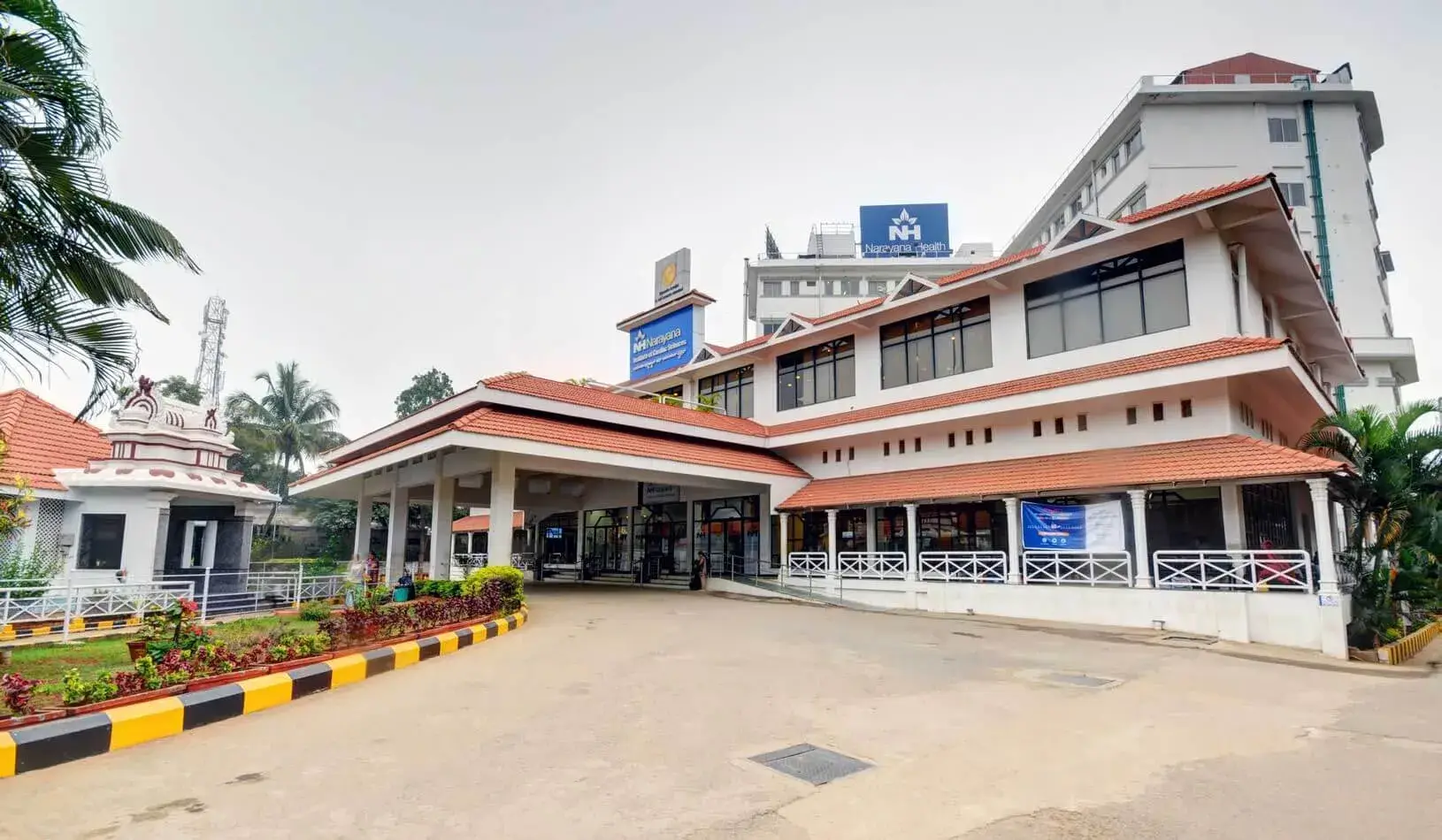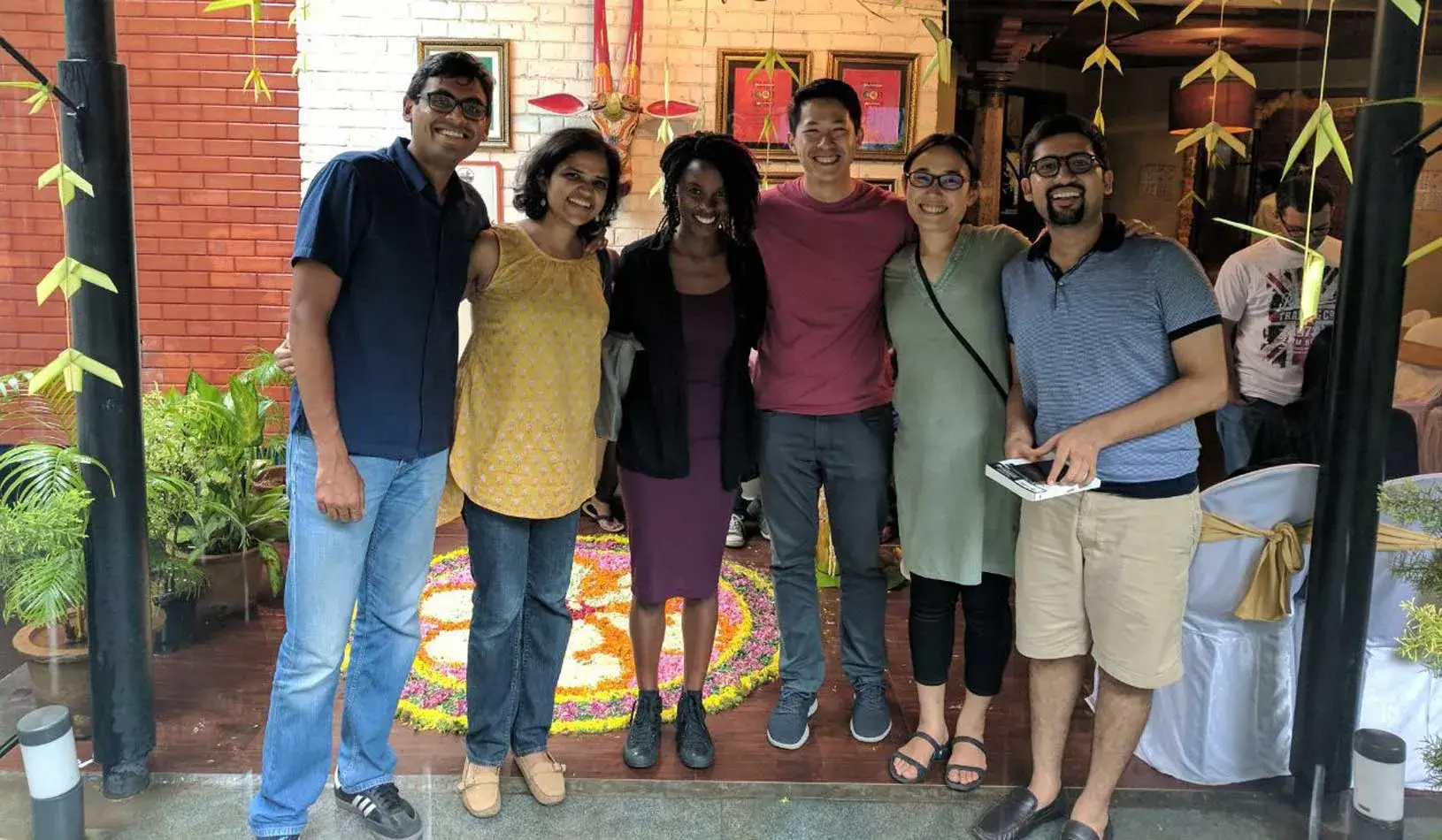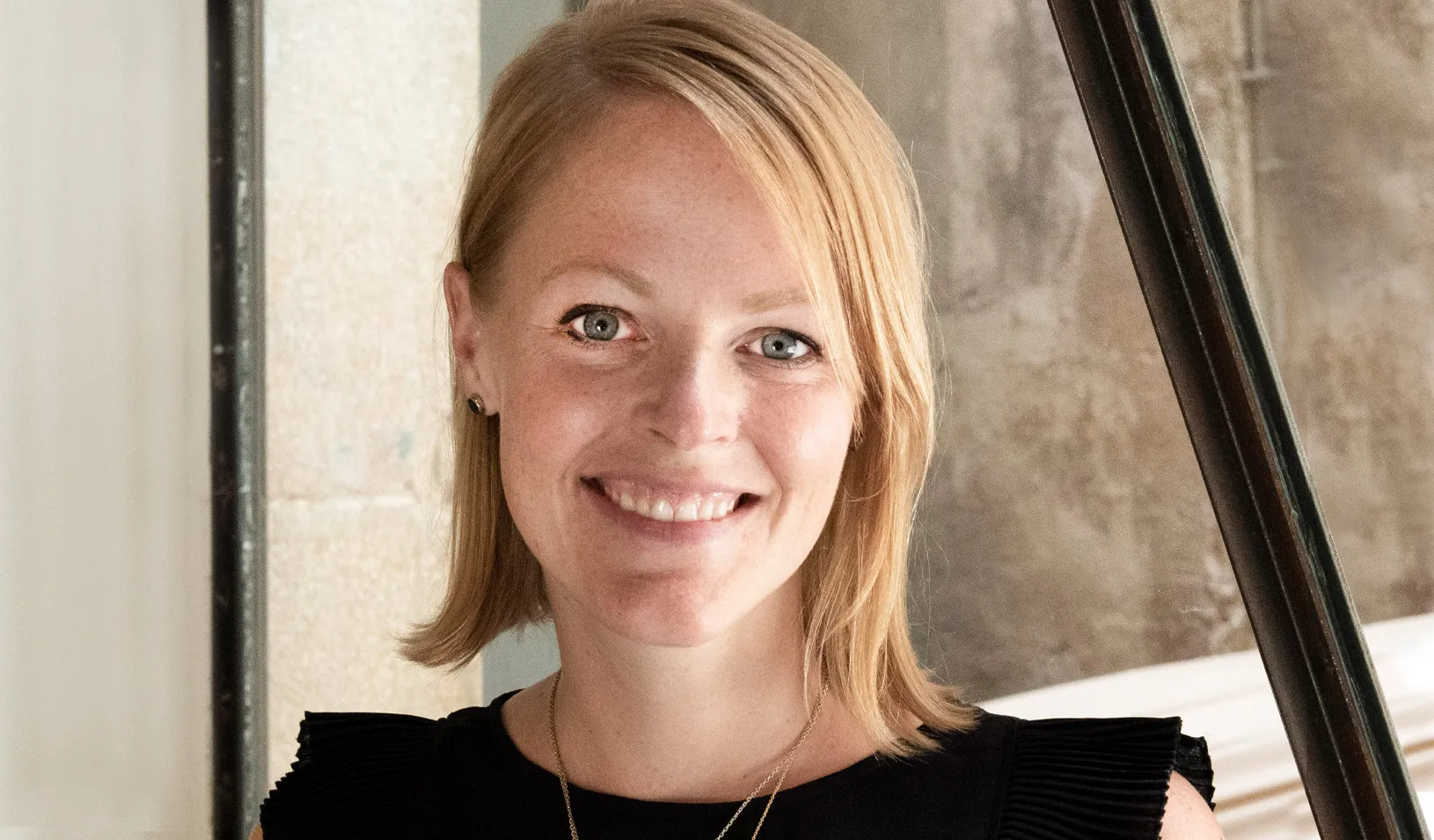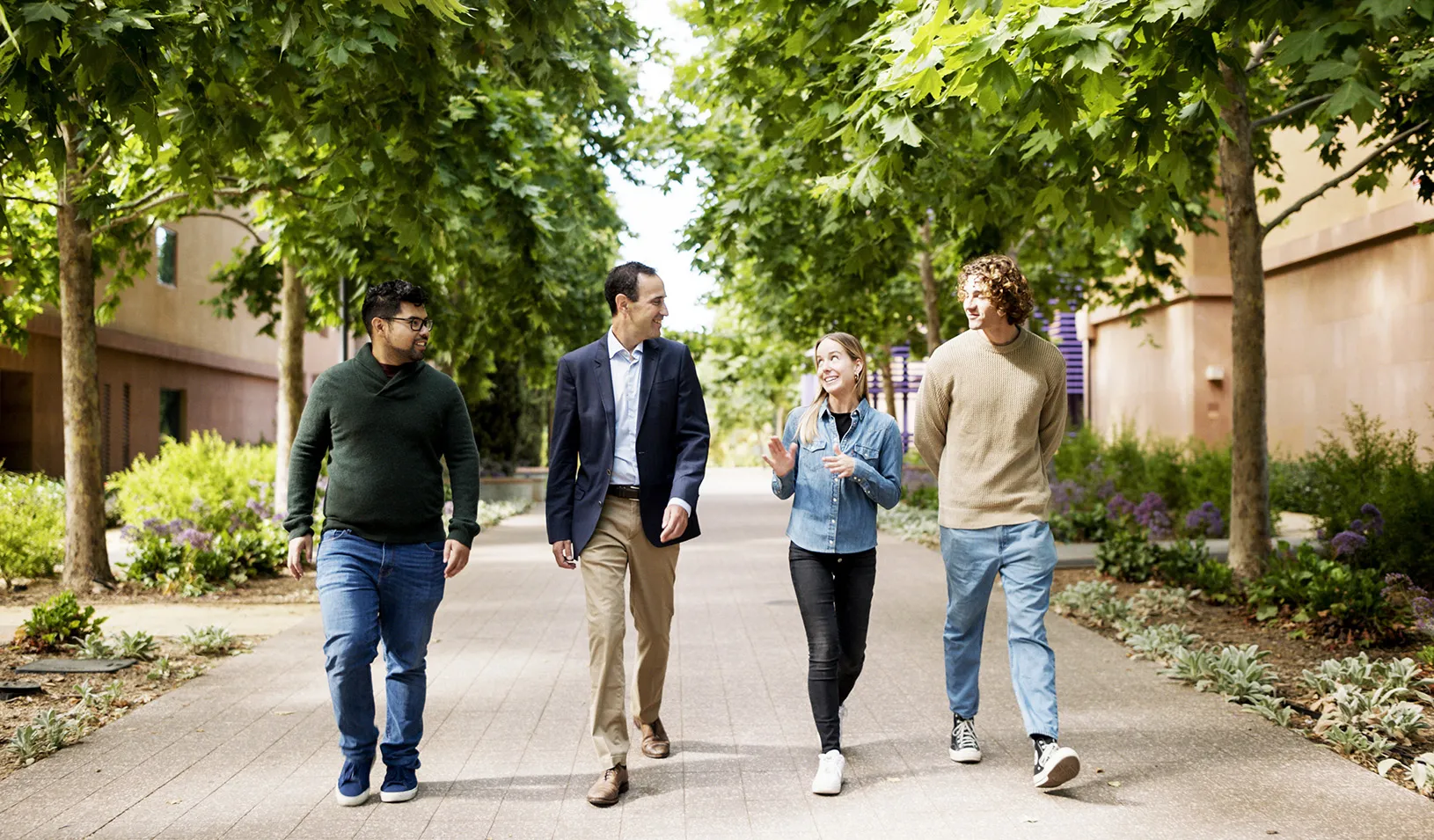An MBA Student’s Transformative Assignment in India Gets to the Heart of Innovative Health Care
The GMIX program gives an MBA student insights on making strides in a less-developed country, and gives an MBA alum access to valuable workers.
November 07, 2017
Hospital network Narayana Health, based in Bangalore, India, has been involved in Stanford GSB’s global management immersion program since 2011. | Photo provided by Narayana Health Ltd.
The conversation between the doctor, the boy, and the young patient’s family at a Narayana Health facility in India took place in a language that Stanford GSB student Edward Lee, MBA ’18, doesn’t speak, but a translator was there for Lee’s benefit.
Lee’s project as a participant in the summer 2017 Global Management Immersion Experience, or GMIX, was to watch how the doctor interacted with the child and the family, in order to determine if there were any impediments to an open discussion and figure out what tools or techniques could improve their communication. Narayana has developed software designed to facilitate doctor-patient interactions, called Cura, and Lee was tasked with evaluating the tool’s efficacy.
GMIX participants Agnes Omega, MBA ‘18 (left) and Edward Lee, MBA ‘18 (right) in scrubs. | Agnes Omega
He saw that the tool did its job, but there’s also room to expand its usefulness. “They’re looking into whether there is something that would take a look at all the patients Narayana has and draw population-wide conclusions,” Lee says.
The interactions he witnessed between doctors and patients, especially child patients, has stayed with Lee. In fact, the personal factor is what drew him to health care in the first place. His father, a neurobiologist, researched Alzheimer’s disease, which afflicted both of Lee’s grandmothers.
“When I was in middle school, it struck me that the work he was doing was something for his mom, and there’s something so powerful about that,” Lee says. “It inspired me to want to help people and families lead longer, more fulfilling lives.”
That’s why, when it came time to choose a location for his GMIX, Lee knew he wanted to go to Bangalore-based Narayana. Cardiologist Dr. Devi Shetty founded the hospital chain with the vision of creating multispecialty “health cities” where every patient could receive affordable care.
Lee figured that his monthlong stint would give him a good perspective on working internationally and allow him to tackle projects in much the same way he formerly did as a consultant with The Boston Consulting Group — in a whirlwind, helping the customer achieve its goals and learning something in the process. In this case, Lee, who has also worked as an HIV strategy officer at The Bill and Melinda Gates Foundation, wanted to get a taste of how health care delivery is provided in diverse markets around the world.
However, he didn’t anticipate the ways in which being in a country with different norms would give him access to information and experiences usually hard to attain in the U.S.
The story that best exemplifies this began with a conversation between Lee and Viren Shetty, MBA ’12: Devi Shetty’s son and the senior vice president of strategy and planning at Narayana. The network — which has 30 hospitals, 2,800 doctors, and upward of 11,500 nurses, technicians, and other employees — is renowned for its cardiac care; doctors perform approximately 1,150 heart surgeries a month.
Lee recalls: “We were talking about the health care system in India and how it differs from that in the U.S., and Viren posed the question, ‘Would you be interested in seeing a cardiac surgery?’ In the U.S., it’s tough to get observations because of patient confidentiality, so when he suggested it, I said, ‘Of course, I’d love to do that.’ ”
GMIX participants Agnes Omega, MBA ‘18 (third from the right) and Edward Lee, MBA ‘18 (fourth from the right) enjoy a restaurant in Bangalore with friends. | Photo provided by Edward Lee.
The next day, Lee and fellow GMIX participant Agnes Omega, MBA ’18, reported to the operating room. Lee expected they would be relegated to a viewing gallery perched above the action. Instead, they were directed to the surgical theater. And when the surgeon realized that the students were standing in the rear, he arranged for them to move closer to the patient.
“He said, ‘If you’re standing so far away, you won’t be able to see anything,’ and he made space for us to be right next to the doctors,” Lee says. “There’s no chance that would happen here in the U.S. And I think it’s things like that, things that were not expected, that made the experience.”
Fewer Regulations, More Opportunities?
Witnessing the surgery, a wow moment in Lee’s GMIX experience, helped plant the idea that a so-called less-developed country might be better-poised than the U.S. to innovate in health care precisely because of the differences in the regulatory environments.
“One big takeaway is that in the U.S., all of the regulatory bodies can inhibit innovation,” Lee says. “In addition, there aren’t as many established health care firms in India that have a strong foothold, and it allows for almost leapfrogging technology.”
At Narayana, Lee was assigned to the ongoing project of assessing Cura, its mobile digital clinical assistant for iPads and smartphones that’s intended to help doctors streamline their work, improve diagnostic accuracy, and spend more time with patients.
Viren Shetty, MBA ’12 | Photo provided by Narayana Health Ltd.
Viren Shetty — an engineer by training, who as a Stanford GSB student worked at the Palo Alto Medical Foundation — says Lee was able to sit with doctors while they interviewed patients, and look at data through the physicians’ eyes.
“If a doctor is talking to a patient, keyboards and screens are things that can get in the way,” Shetty says. “So we’re working on ways for them to continue maintaining eye contact while logging the data and creating a comprehensive record. Ed was able to get that experience by sitting in on patient interviews, and he might not have been able to get that in a more developed country.”
Narayana has been involved in GMIX since 2011, when Viren Shetty was at Stanford GSB himself. As an executive, says Shetty (who jokingly describes himself as the family embarrassment, since his father, brothers, and uncles are all physicians), he values the program because it brings some of the brightest minds in business to the hospital network and ensures that they leave with a more global perspective.
“Four weeks gives a flavor of what working in an international environment is like,” Shetty says. “We believe that the project that Ed worked on here can transform the way health care is delivered.”
Nishita Bakshi, associate director of Global Experiences at Stanford GSB, points out that transformation is at the heart of every GMIX experience. On average, the program places about 100 students annually in 35 countries around the world, she says. The goals are that by immersing themselves in new places, students will not only contribute to their sponsoring organizations but also better understand the culture, customs, and business practices of their host nations, hone their own business acumen, and become better global business managers or entrepreneurs.
Accomplishing GMIX Goals
Sometimes, reaching those goals manifests in small ways. One student, for example, struggled through her initial days in China, surrounded by colleagues who didn’t seem to want to interact with her. She committed to asking someone to lunch every day, and discovered that her colleagues had been shy with her because they feared that their own English skills were lacking.
Sometimes, a transformation manifests in much larger ways. Adam Compain, MBA ’15, who worked on new product incubation at Google before starting his Stanford MBA program, decided that he would indulge his childhood love of shipping during his GMIX experience.
According to Bakshi, “He said, ‘I know I’m never going to work in or spend my life in that industry, but GMIX seems like a good way to scratch that itch and live that dream and be on a dock and be surrounded by ships.’ ”
While Compain was on the docks in Hong Kong, he noticed that the scores of pallets left lying around posed a challenge, and realized that there was a huge opportunity for streamlining the supply chain. The company that Compain later co-founded — ClearMetal, a San Francisco-based predictive-logistics operation — has raised $12 million through two rounds of funding.
Even in the absence of such dramatic change, the global management immersion opportunity often gives participants more clarity about what they want to do with their careers. It offers students ways to explore a new industry or job function, reflect on whether to join a startup or a multinational company, or get firsthand experience with a new part of the world and the people who live there.
“When students stretch themselves, they learn that language isn’t the only medium of communication and that people can still show empathy and understanding without having a common language,” Bakshi says. “Most often, they get even more out of it than they thought they would, and they come back excited about the new understandings they have.”
For Lee, GMIX helped confirm what he already knew — that he was meant to work in health care — but also gave him new avenues to consider.
“I had previously always thought about how to make innovation work in the U.S. health care industry, overcoming some of the incumbent regulatory pressures,” Lee says. “But perhaps there’s more opportunity to innovate in another country and leapfrog more established systems.”
— Mary Duan
For media inquiries, visit the Newsroom.
Explore More
Erin Nixon Joins Stanford GSB as Assistant Dean of Admissions

Nia Rose Froome, MBA ’23: Making Local, Fresh Food Available for All

New Research Fund Promotes Responsible Leadership for the Next Century
